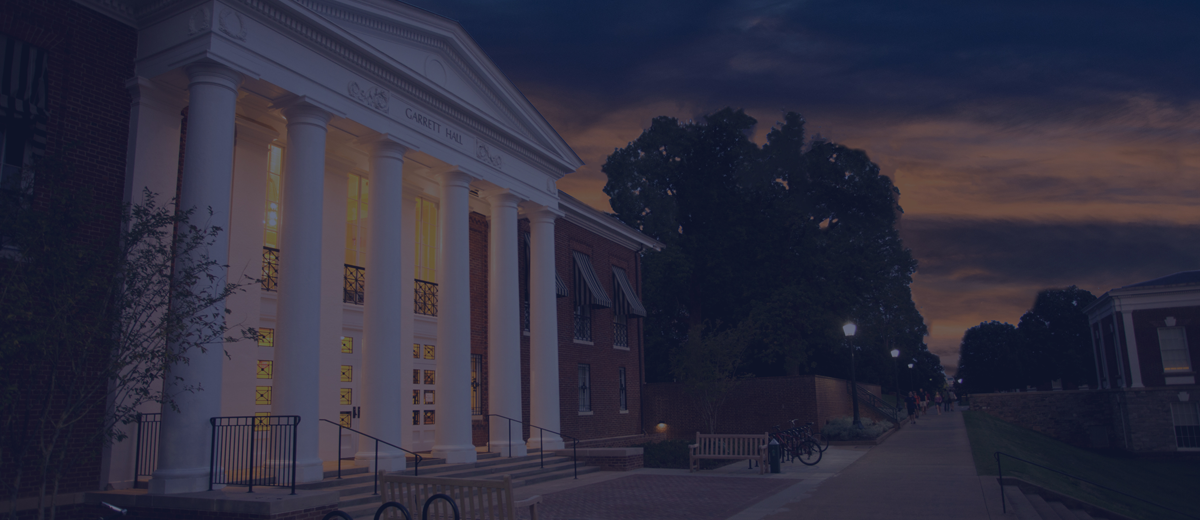Batten’s Shimshack Explains If (and Why) People Wait Too Long to Stock Up to Prepare for Hurricanes
Is it the “ostrich effect?” Misguided optimism? Ease of shopping during normal times? Or a distrust of government warnings?
“Millions of Americans receive messages (stating) steps we can take to prepare for approaching storms,” said Batten’s Jay Shimshack. “Do people actually follow this advice? Who, why, and how much?”
These are not academic questions for Shimshack, who has taught at Tulane University in New Orleans and knows full well the damage caused by storms.
Shimshack, Associate Professor of Public Policy and Economics, and two colleagues point to what they do know: people prepare poorly for major storm disasters, despite plenty of advance warning from government officials, power companies, and others.
He and his colleagues found that many people do not sufficiently prepare as storms threaten. Many wait to buy what’s needed until just before a storm hits, or even after it has impacted the area.
Summing up their research, Shimshack and his colleagues wrote, “Our results suggest that households do not follow government advice. This is especially true for more vulnerable populations.”
Shimshack and two other professors used extensive supermarket scanning data taken from bar codes of products at stores across the United States to study purchasing by storm-threatened communities.
They concluded that early-season stockpiling appears small; few people prepare “without a real, direct threat,” Shimshack wrote in an e-mail message.
Then, as storms threaten, “sales of bottled water, batteries, and flashlights do increase, on average,” he said. But these modest increases “occur shortly before landfall, not shortly after learning about threats.”
Then, only after a storm does make landfall, many people do finally purchase what’s needed, Shimshack said.
“The fact that people are running out to purchase emergency supplies like batteries and flashlights after landfall–despite being told to stay off roads– is strongly suggestive of people being underprepared.
“They are going out and buying emergency supplies because they need them. This suggests they didn’t prepare enough,” he said.
This is even clearer in “large differences across socio-demographic groups,” Shimshack said. ” Lower income, less educated, and minority populations appear to prepare less ahead of time and have much larger needs after storms make landfall.
Shimshack and his colleagues suggest three reasons for lack of preparation:
“Information. People don’t receive or understand the threat information. It is certainly true that hurricanes are complicated and hurricane impacts differ from storm to storm.

Psychology. People are overly optimistic about personal risks; they choose to ‘bury their heads in the sand’ instead of confronting scary realities.” In their paper, they refer to this as “an ‘ostrich effect.’
In addition, “Minority, lower income, and less educated populations are least likely to access, trust, and respond to risk information.”
And, finally, they conclude that delaying purchases is a rational choice for some people.
“Supply chains are getting better at providing emergency goods after landfall—as long as stores are open, water, batteries, and flashlights are available. In light of this, some people may choose to delay purchases until they are absolutely necessary.”
Government can do more to prepare, too, by analyzing specific neighborhood purchasing data like the kind that Shimshack and his colleagues used—or, possibly, a “real-time monitoring of sales“ to determine where best to provide help.
In addition, “More targeted messaging campaigns may be necessary to completely reach at-risk populations not well served by current communication strategies.”
And though it would cost governments to stock up on supplies for certain neighborhoods, they suggest “direct public provision of emergency preparedness goods or public/private partnerships to increase sales of emergency goods before storms arrive.”
Great advice, with several months left to go in the U.S. hurricane season.
The research paper by Shimshack; Tim Beatty of the University of California, Davis; and Richard Volpe of California State Polytechnic University, San Luis Obispo, is “Disaster Preparedness and Disaster Response: Evidence from Sales of Emergency Supplies Before and After Hurricanes.” It can be downloaded here.
Related Content
Jay Shimshack

